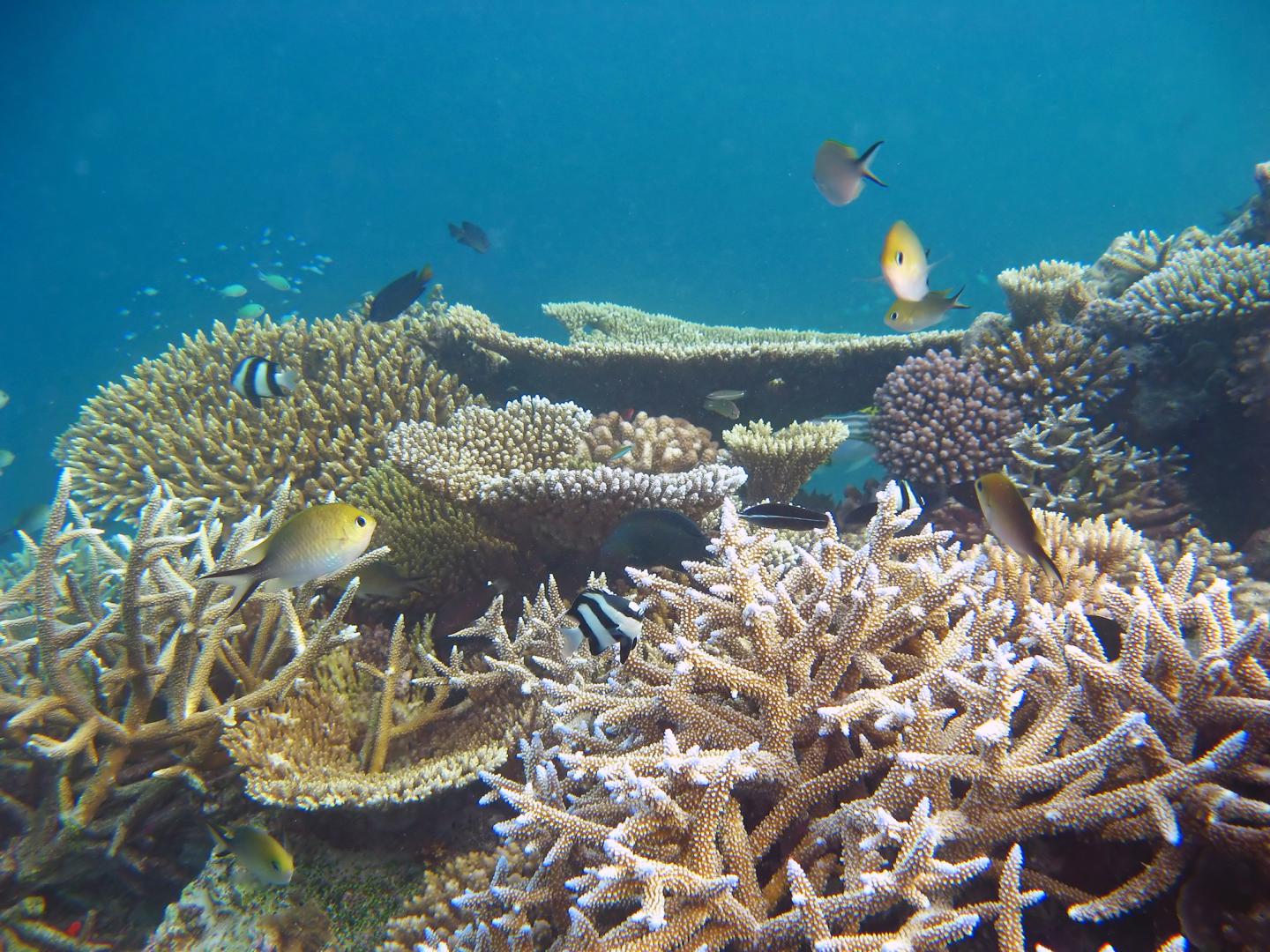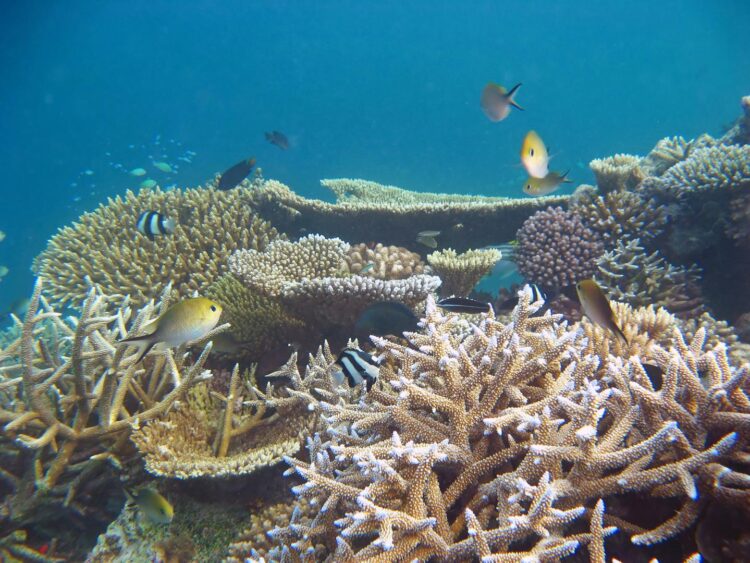
Credit: Davide Seveso
Predicting the potential effects of coral loss on fish communities globally is a fundamental task, especially considering that reef fishes provide protein to millions of people. A new study led by the University of Helsinki predicts how fish diversity will respond to declines in coral diversity and shows that future coral loss might cause a more than 40% reduction in reef fish diversity globally.
Corals increasingly bleach and often die when the water warms. What happens to fish if there are no alternative reefs to swim to? The few fish species that feed on corals will inevitably starve, but the rest might find alternative rocky habitat to persist. As yet, it has been hard to do the larger-scale studies that can project what fish will remain in a world without corals. A new study led by Giovanni Strona at the University of Helsinki finds that global projections of fish diversity without corals are as low as small-scale experiments suggest.
An international team of marine biologist started by mapping tropical fish and coral diversity across the world’s oceans for every square degree latitude and longitude. These unprecedented maps showed what marine biologists have long known, fish and coral diversity vary widely, with many more species in the Indo-Pacific “coral triangle” than in the western Atlantic and eastern Pacific. Marine diversity hotspots have been long explained by the way that latitude, habitat, temperature, and geography affect speciation and extinction rates among corals and fishes alike. After controlling for factors that drive diversity in general, the authors found that areas with diverse corals still tended to have more diverse fishes, suggesting that coral diversity begets fish diversity.
“This is not particularly surprising given that corals provide a unique food source for some species, as well a three-dimensional habitat that many species use for shelter. And the fish that depend on corals may be prey for fish that don’t depend directly on corals,” says the lead author Giovanni Strona from the University of Helsinki.
After fitting the line between coral diversity and fish diversity, the authors did a simple thought experiment. They anticipated global coral extirpation by extrapolating the fish vs corals association down to the point where no coral species were left. That extrapolation suggested that around 40% of the world’s tropical reef fishes are likely to disappear should corals disappear. As shown in smaller scale experiments, this is a much bigger loss than those species known to depend directly or even indirectly on coral, suggesting that coral reef food webs will begin to unravel if corals do go extinct. This unravelling is expected to be more intense some places than others. The Central Pacific is expected to lose more than 60% of its reef fish, compared with only 10% in the Western Atlantic.
“We first devised a statistical model to disentangle the effect of environment, biogeography and history on fish and coral diversity that accurately predicting local-scale fish diversity as a response to several environmental variables such as water temperature, pH and salinity and coral diversity,” Strona explains.
“Besides offering a way to predict fish diversity under novel environmental conditions, the approach offered a tool to explore how fish diversity will vary in response to changes in coral diversity”, continues Valeriano Parravicini, a co-leader of the study at the University of Perpignan.
“For anyone who has enjoyed snorkeling on a coral reef, or for the millions of people that depend on reef fishes for food, this thought experiment should be concerning. But it also inspires greater efforts to conserve and restore coral reefs. The benefits of doing so would extend far beyond corals, to fish and other organisms that depend directly or indirectly on corals,” says Kevin Lafferty, Senior Scientist with the U.S. Geological Survey, at the University of California, Santa Barbara.
###
Media Contact
Giovanni Strona
[email protected]
Original Source
https:/
Related Journal Article
http://dx.





